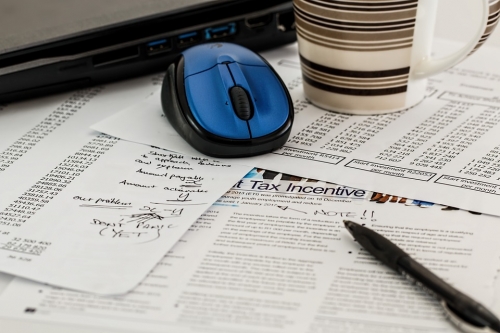For most people, immigrating to the United Kingdom (UK) means working for a living. As a part of working life there are many expenses that need to be considered, one of which is taxes. There are many types of taxes that apply within the UK, whether it be on everyday items in the form of VAT (Value Added Tax); Income Tax, which is a tax you pay based on how you earn; or corporation tax, which is paid by businesses that is levied on a company’s profits. However, the focus of this article is on income tax.Income tax is automatically deducted from your pay cheque, if you are not self-employed or working as a freelancer. The employer is responsible to pay most of the necessary taxes that come with a working lifestyle. However, every year there is a tax return policy whereby anyone who is subject to paying UK taxes needs to fill out the appropriate forms. This information will require the employee to declare any taxable income and any other financial gains. If the employee has a single income source and is as staff member of a registered company, the employee does not have to complete a tax return form. It is only applicable if the employee has an extra income source that is not automatically taxed as the wage is earned.
Who completes UK tax returns?
Tax returns are completed by the employer and are based on earnings. It does not take into account any other earnings through property rental, dividends from shares, or freelance work. If you have other sources of income like this, then it is your responsibility as the income receiver to declare this through a tax return.
The tax year runs from 6th April to 5th April of each year, but as soon as an individual become a resident of the UK, they become an automatic tax payer. There are some rules that may exempt an individual from this rule. For example, anyone who is a resident for over 183 days of a single tax year becomes a resident UK tax payer for that year, however if the residency duration falls under the 183 days then they are known to be a non-resident tax payer if no other factors apply.
There are four factors that are considered on top of the basic duration rules:
1. Whether the individual’s spouse or children are UK residents
2. Whether the individual has substantial employment in the UK
3. Whether the individual has access to accommodation, even if owned or lived in by another person
4. The individual’s presence over the past two tax years – if the individual has been in the UK for more than 90 days over the two years
If a person has been in the UK for under 46 days, they are always considered a non-resident. If the individual has been in the UK between 46 and 90 days and all four factors comply, they will be considered a tax payer. If they have been in the UK for between 91 and 120 days and three factors comply, they will be considered a tax payer. If they have been in the UK between 121 days 182 days and two factors comply, they will be considered a tax payer, otherwise they will be a non-resident. Any individual who has been in the UK for more than 183 days is automatically a UK tax paying resident, as mentioned previously.
Non-resident tax payers
Any non-UK tax resident is required to pay tax on any earnings in the UK. For example, this covers expats who do not live in the UK but have a property of some kind in the UK which is rented out. This income would then be taxed and would need to be declared through a self assessed tax return of the whole year and must be paid directly.
UK residents are required to pay tax on their worldwide earnings, therefore a UK resident who has a property in another country would also pay UK tax on their rental earnings for that property too. This can mean there could be a double taxation, from the UK and the country where the property is. There are some rules in place that make exceptions to prevent double taxation, but this is not always the case. If there is a rule that applies, there will be tax exemption from one country or the taxation fee will be given in credit from one country to the other.
If the individual is working in the UK for a short period, the same rules apply and the individual would be a non-resident tax payer but the wage earned during their time in the UK will be taxed regardless.
Self-employment taxations
As mentioned previously, if an individual is a freelancer or self-employed worker, their taxes are not automatically deducted. It is the job of the individual to carry out a full tax return on any earnings from their jobs and these must be paid directly to HMRC. If the individual comes to the UK often as a part of their self-employment or freelance job, it is a good idea to seek professional financial advice in order to prevent double taxation between their home country and their time in the UK. If a foreign business trades through the UK using a limited company, corporate taxes are then applicable in the UK if the company establishes a permanent branch there.
Students
For students, there are generally no issues when it comes to taxation, even if the individual is studying for a long period of time. Any income through a job will most likely be under the taxable threshold of £10,000 per year. Any personal savings, gifts in the form of money, scholarships and bursaries awarded before arrival in the UK are disregarded. Once the student finishes education and becomes a UK tax resident then all the taxation rules apply. If the individual has income overseas, the worldwide taxation will come into play.

